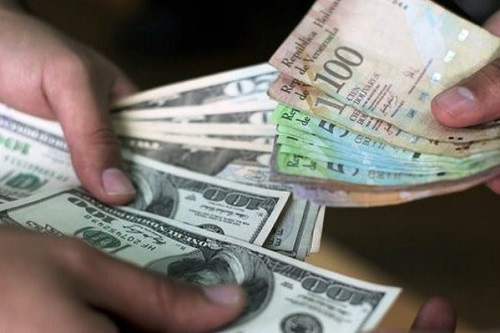AFP photo
By
Ricardo Swire
The black market was created for popularly demanded goods and services to be traded in a manner contrary to national law. Annual time series data indicates size and growth of such unreported income and implied tax gap significantly affect a country’s deficit, debt and tax reform totals. Domestic organized criminal syndicates monopolize black market facilities to provide forbidden products and amenities.
In early May 2017 Guyana Police Force (GPF) detectives raided a residence and arrested a forty-five year old local woman. The detainee was found hoarding explosives in her Mabaruma apartment. The trader at Kumaka Waterfront on the Aruka River had thirty-three units of an explosive referred to as the “Bin Laden Bomb,” plus other categories of dangerous reactive substances, in her residence without a valid explanation or needed import licenses. The Guyana Defence Force (GDF) alone is issued the import license for similar pyrotechnics.
Internal security intelligence noted Bin Laden Bombs are smuggled from Venezuela and sold on Guyana’s black market. Additionally quotas of gasoline, flour and shampoo delivered by boats to the Guyanese jungle town Mabaruma. Flour packages labelled “For Sale in Venezuela” are dispensed in Georgetown. Stirred by worsening economic crisis smuggling activities across Venezuela’s land and sea borders have reached unprecedented levels. The exchange rate of four hundred bolivars to one American dollar took Venezuela’s currency to more than sixty times the government primary rate assigned to foreign exchange transactions.
Venezuela’s updated Datanalisis Index of Scarcity, reflecting essential goods missing from local store shelves, exceeds seventy percent. From the western village of Boca del Grita to the eastern port of Guiria, at borders with Brazil and Guyana, unimpeded smuggling is prevalent. In Guyana several motorists drive vehicles fueled by contraband gasoline. In one scenario a patrolling Venezuelan Navy ship detained a state-owned oil tanker illegally smuggling fuel. The northwestern town Maracaibo is an “open” black market where “contrabando” is displayed on tables.
Nationally most bootleg transactions take place underground. Shoppers find “retailers” through friends or closed chat groups on Facebook and WhatsApp. Venezuela’s black market average markup is seventeen times state regulated prices. Both consumer and merchant prefer the black market to restrictive government price controls, rationing schemes and heavy taxes on similar goods and services. Illegal cash finances domestic Bond Traders’ white-collar fraud schemes, in which American currency is sourced at preferred rates. Trading Venezuelan bolivars at a parallel rate is illegal. Black markets thrive more when US currency is scarce.
Recently the Presidents of America and Peru agreed to help strengthen Venezuela’s fragmented “democratic institutions.” Analyzed patterns show several Venezuelan importers practice fraudulent “Arbitrage Schemes.” American dollars reserved for merchandise purchases are otherwise utilized. Substitute acquisitions quickly resold underground for tax free profit. Both intervening governments attempt to influence a peaceful end to Venezuela’s continuous anti-government rebellion.
The Vatican sponsored mediation convened on January 13th 2017, between Venezuela’s socialist government and protesting far right opposition coalition members, was one effort to address the Bolivarian Republic’s violence and countrywide tension. A widely circulated March 2017 social media video televised three National Army of the Bolivarian Republic of Venezuela officers, wearing Lieutenant rank insignias, who openly declared they no longer recognize the country’s political leadership. Four weeks later the trio were in Colombia seeking political asylum.
Ricardo Swire
Ricardo Swire is the Principal Consultant at R-L-H Security Consultants & Business Support Services and writes on a number of important issues.



No Comments Yet!
You can be first to comment this post!